
Is it a Weekend? and you can’t wait to start your pressure washer to clean up the patio, cars, and Driveway. You wheel it out of the garage, hook up the hose, add fresh gas, and you’re ready to blast away all that winter junk with the small engine. But when you pull the starter cord, nothing happens. The pressure washer won’t start Or it sputters weakly and then dies out. Uh oh.
You turn the choke on, and the engine runs. But as soon as you turn the choke off, it dies again. Means the washer only runs on choke! Drats! Now your day of running the engine or cleaning is looking more like a day of frustration. But what is the Reason? There is too much gas in your Carburetor, air leaks, a faulty spark plug, you are using the wrong fuel, and you have dirty air filters. The engine can’t get enough gas to operate smoothly, and Dirt debris, and varnish in the fuel lines restrict fuel flow.
Don’t stress! Pressure Washers that only run on choke are a common problem faced by many pressure washer engine owners. You’re not the only one who is facing the problem. The good news is, that you can often fix the issue yourself with a few easy processes or buy some new parts for your Pressure washer for a small amount. The Bad news is that if you don’t fix the problem, it may cost you a bigger amount or a new pressure Washer.
With the right solutions, you can get back to enjoying your pressure washer without any hiccups. Let’s get started bringing that baby back to life!
What is a choke Valve?
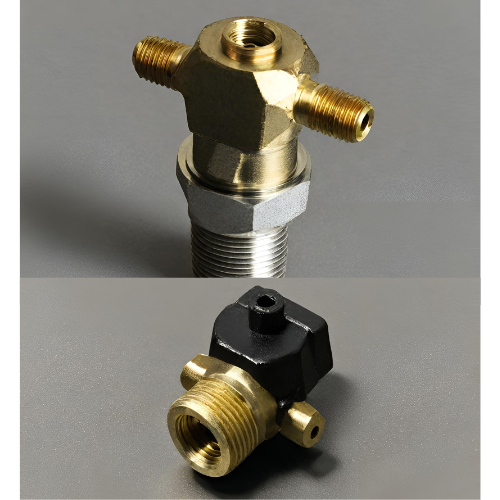
In simple terms, the choke is a little handle or knob found on a Pressure Washer that controls the air and fuel mixture needed for starting the engine. This helps cold engines start. When it is engaged, it restricts the amount of air entering the engine, resulting in a richer fuel mixture. This helps the engine start and run smoothly and makes the engine get more gas, which helps it start up easier when cold.
What is the Use of Choke in a Pressure Washer?
Let’s dive into the use of your pressure washer. It plays a crucial role in starting and running your machine smoothly.
When an engine is cold, the fuel doesn’t vaporize well. By limiting the air with it, you create a temporarily richer fuel mixture. This extra fuel helps the cold engine and causes it to run more easily.
As the engine starts, it gradually opens, allowing more air to enter and adjusting the air-fuel mixture to the appropriate ratio for efficient combustion.
It provides a “fast start” for cold engines by restricting airflow to enrich the fuel. It’s closed when starting, then opened as the engine warms up. This helps get it going after a cold start!
Reason Why Your Pressure Washer Will Only Run on Choke
The choke is a valve and is a useful tool for cold starting your engine. But keeping it open once the engine is warm prevents sputtering and runs the pressure washer properly.
When starting a cold engine, closing it, reduces airflow so more fuel can enter the carburetor. This gives a richer mixture that helps the engine fire up more easily when cold. Once the engine warms up, the fuel vaporizes better and needs less choke. If it stays closed too long, the fuel mixture will be too rich. This can make the engine run rough or sputter.
There are a few potential reasons for this frustrating issue.
Clogged Carburetor:
Dirt and debris can close the tiny holes in the carburetor. It is affecting the fuel flow and may require you to keep the choke closed longer. Clean it when needed. You can use the Carburetor Cleaner.
Air in the Carburetor
An air leak or intake means extra, unnecessary air is entering. This lean fuel mixture requires keeping the choke closed longer to compensate. Checking gaskets and tightening fittings can fix these leaks.
Wrong Fuel
Check the fuel. Using gasoline with ethanol or gasoline that is old can cause poor vaporization. More choke is needed to enrich the fuel mixture. Use fresh 87+ or higher octane gasoline without ethanol for best performance.
Clogged Fuel Filter
Water, dirt, microbes, or debris in the fuel system can stick to ports or lines in the carburetor. The reduced pressure washer’s fuel tank flow requires running with the choke closed.
Dirty Carburetor
A carburetor that is clogged with varnish, dirt, or debris affects fuel flow through the small jets and passages. The engine may need a choke to run. Disassembling and cleaning the carburetor will allow proper fuel mixing and smooth running.
Clogged Lines
Gunk and dirt can build up in the carburetor. These are small holes that fuel flows through. A choked-up carburetor makes the engine need more choke and causes more frustration. Taking apart, cleaning out, and removing the gunk.
Reason Behind How Your Pressure Washer Runs of Choke
I hope you now understand the previous Details. Let’s now explore the reasons Behind This choking.
- Extra, unmetered air entering can require more choke to enrich the mixture again.
- If the carburetor is dirty or worn out, it may not be able to properly regulate the fuel mixture
- Old gasoline or debris in the fuel system can clog carburetor jets and passages.
- The choke may be stuck or not fully opening.
- If the choke lever or knob sticks, It may not open fully. These need repair.
- The choke aids cold starting, but keeping it open once warm prevents sputtering.
- Proper and timely not given time for maintenance.
Which Gas is compatible with your Pressure Washer
Let’s move further and dive in. It’s important to use clean, fresh gasoline without any added ethanol, as ethanol can cause damage to the engine. The type of gas used in your pressure washer can significantly impact its performance and longevity.
Using the right type of gas in your pressure washer is important for it to run properly.
The best gas for pressure washers is 87 octane or higher than regular unleaded gasoline. This is the same gas you put in most cars and is fine for your gas pressure washer.
Here are some key points you need to know!
- Don’t use gas with ethanol! Ethanol is alcohol and added to some gas, it causes issues in pressure washers. find pure or “ethanol-free” gas.
- Non-ethanol Gas produces a lot of corrosion.
- Don’t Use the gas if it is more than 30 days old.
- Use a fuel filter for catching dirt and debris, also be careful to not add water particles in water.
- Read the manufacturing instructions for the best results.
How to Check the Gas
Now We are last but not least. I think we already cover all the necessary points that you should know!
Color and smell
Fresh gas should be clear and bright, and have a fresh and mild smell! Look at the darker coloring which indicates bad or expired fuel. A sour or strange smell means the gas is going bad or is no longer being used.
Bad Texture
Gas should feel smooth and liquid. A thicker texture means there could be dust, debris, or ethanol blending.
Smell
The fuel smell should be neutral or mildly sweet. A sour or strange smell means the gas is going bad or is no longer being used.
Date
Don’t use gas that has been stored for more than 1 month. Always Mark the gas can with the date.
Storage
Keep gas tightly sealed and avoid direct sunlight.
Conclusion
Finally, the Mystery is now Clear. You can solve your choke issue by yourself without consulting a professional. Just have to give it some time and Apply the methods as I Explained. Using the proper 87+ octane ethanol-free gasoline and regularly cleaning the carburetor can help prevent these issues. Proper startup and operation will maximize performance and extend the machine’s lifespan. Just take it step-by-step – you’ll be pressure washing in no time!
Thank you for Reading!
If you have any suggestions, Information or Idea Reach us! We want to Hear you!
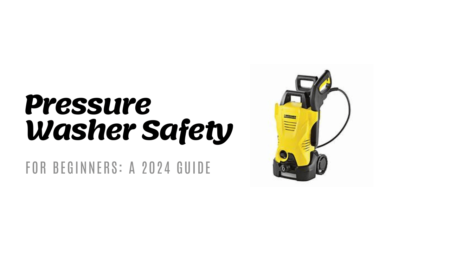
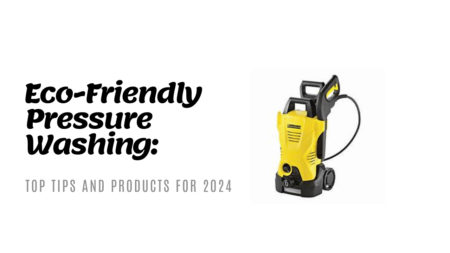
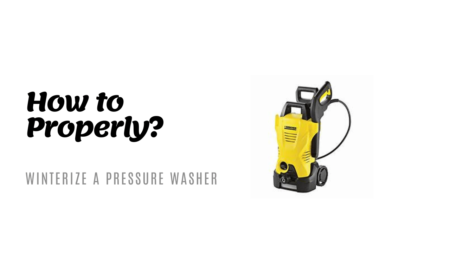
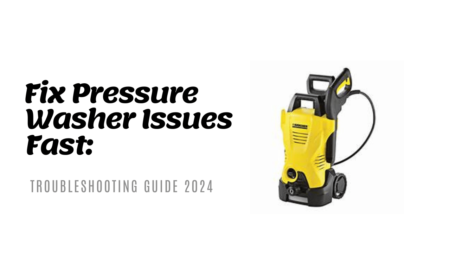
![Pressure Washing Regulations: What You Need to Know [Updated 2024]](https://pressurwasher.com/wp-content/uploads/2024/05/Minimalist-Tutorial-Event-YouTube-Thumbnail-2024-05-31T224409.854-450x253.png)
![Ultimate Guide to Pressure Washer Maintenance [2024 Edition]](https://pressurwasher.com/wp-content/uploads/2024/05/Minimalist-Tutorial-Event-YouTube-Thumbnail-2024-05-30T230638.695-450x253.png)